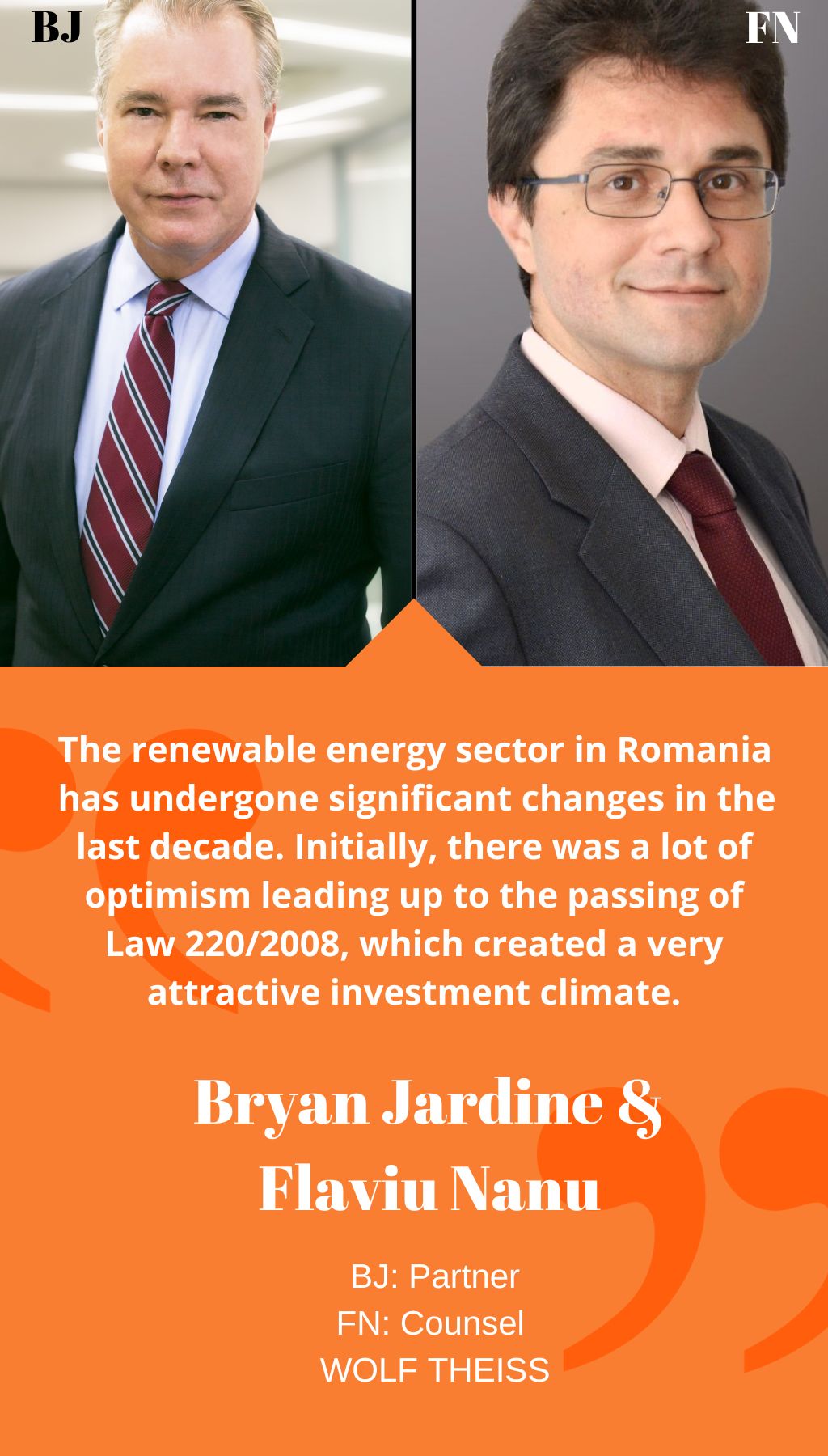
- Romania | 18 November 2019

Can you please give us an overview of Wolf Theiss’ presence in Romania and your expertise in the energy sector?
BJ: Wolf Theiss has been operating in Romania since 2005 and we have always aimed to provide a comprehensive range of legal services. Our core areas include banking and finance, corporate M&A, real estate, and dispute resolution, all of which intersect with the energy sector. We have worked on financing for upstream companies and were the local lawyers for the acquisition of Rompetrol by KazMunayGas in 2007. We also have experience in buying and selling wind and solar parks, especially between 2008-2013 when the renewables sector was booming.
How would you describe the current business climate in the renewables sector in Romania?
BJ: The renewable energy sector in Romania has undergone significant changes in the last decade. Initially, there was a lot of optimism leading up to the passing of Law 220/2008, which created a very attractive investment climate and resulted in a “golden age” for renewables in Romania. Unfortunately, the legislation changed, and the subsidies were scaled back, which led to a real market crash. Many projects were stopped, and investments were lost. Currently, business plans no longer account for state subsidies and instead focus solely on the revenue generated by selling electricity.
FN: Despite this, there is a sense of cautious optimism in the market. Two years ago, most projects were in distress, but now they are slowly starting to sell their energy and green certificates. Our clients are not building new projects, but they are operating existing ones, and they sense that the changes brought in 2018 were beneficial. The National Energy and Climate Plan, which envisages a 27.9% share of renewable energy sources in energy consumption in 2030 and calls for EUR 22 billion in investments in power plants and the power grid in the next 10 years, has also helped.
Romania has an abundance of resources. How does it compare to other countries in the region when it comes to regulations?
BJ: The regulatory environment in Romania is not significantly more onerous than other countries in the region, and the existing regime is generally favorable. The country’s natural resources certainly strengthen its position compared to others in the region. For example, the Czech Republic may have an attractive regulatory regime, but they cannot extract natural resources that do not exist or are not economically viable.
FN: Romania introduced amendments to the Energy and Oil & Gas Law last year, which were interesting and positioned Romania as a strategic player in the region. The changes introduced the concept of trade of natural gas and enhanced the provisions regarding the distribution of natural gas and the administration of natural gas centralized markets. The state has also stepped up regarding energy efficiency projects, and we have seen updates regarding the concept of the “prosumer,” which is very positive.
What is Wolf Theiss’ vision for Romania, particularly in the energy and resources sector?
BJ: The energy sector remains very attractive for us, and we are well-positioned to assist clients in this industry. Romania is blessed with abundant natural resources, and there is still a lot of work to be done. Despite the negative press Romania has received, we are still witnessing significant investor interest in the country. Romania needs to work through issues surrounding the regulatory and legislative framework, but its fundamentals remain strong and attractive. There are not many neighboring destinations that are more attractive, especially considering the current situations in countries like Turkey, Ukraine, or even Poland.














